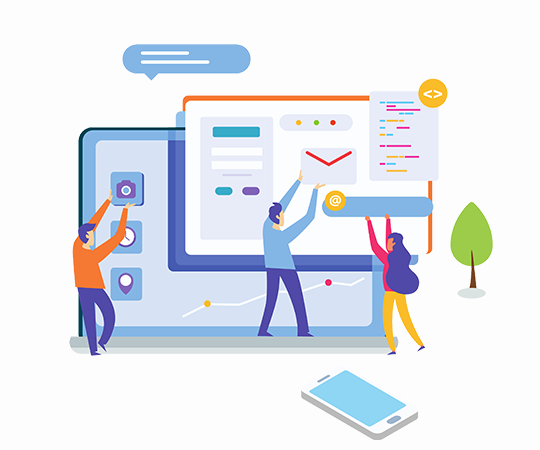Utility app development involves creating software applications that offer specific functionalities to enhance productivity, convenience, or entertainment for users. These apps cater to diverse needs, from simplifying daily tasks to optimizing processes across various domains. They focus on delivering practical solutions and serve as handy tools in our digital ecosystem.
The essence of utility apps lies in their functionality. They’re designed to fulfill specific purposes efficiently, often addressing common problems or streamlining tasks. For instance, they might include apps for file management, weather forecasts, calculators, language translation, or barcode scanning. These apps aim to simplify tasks that might otherwise require multiple steps or tools.
In the contemporary landscape, utility app development spans various categories:
Productivity Apps: These assist users in managing tasks, schedules, notes, and documents. They encompass to-do lists, calendar apps, note-taking tools, and document scanners, enabling users to organize and streamline their work efficiently.
Utility Tools: Apps falling under this category include calculators, converters, flashlight apps, barcode scanners, and QR code readers. They provide instant access to necessary functionalities without the need for separate physical tools.
Health and Fitness Apps: These apps help users track their fitness routines, monitor health parameters, and maintain a healthy lifestyle. They often incorporate features like step counters, calorie trackers, workout planners, and meditation guides.
Finance and Banking Apps: Mobile banking, investment trackers, expense managers, and digital wallets fall into this category. They facilitate secure and convenient financial transactions and management on the go.
Communication Apps: These encompass messaging platforms, email clients, video conferencing apps, and social media utilities, enabling seamless communication and networking.
The development process for utility apps involves several stages:
Idea Generation: Identifying a specific need or problem that can be addressed through an app.
Research and Planning: Understanding the target audience, analyzing competitors, and outlining the app’s functionalities and features.
Design and Prototyping: Creating wireframes, UI/UX design, and prototypes to visualize the app’s interface and user flow.
Development: This stage involves coding, testing, and integrating functionalities to ensure the app performs smoothly across different devices and platforms.
Testing and Debugging: Conducting rigorous testing to identify and fix any bugs or performance issues before the app’s launch.
Deployment and Maintenance: Launching the app on app stores and providing ongoing maintenance and updates to ensure compatibility with evolving technologies and user needs.
Apps have become an integral part of daily life, offering a myriad of utilities that streamline tasks, enhance productivity, and entertain. Their utility lies in their convenience, accessibility, and functionality across various domains.
Firstly, apps simplify routine tasks. Whether it’s managing finances, organizing schedules, or creating to-do lists, there’s an app for almost everything. They offer a centralized platform accessible at any time, allowing users to efficiently handle their responsibilities.
Secondly, apps boost productivity. From project management tools that facilitate collaboration to note-taking apps aiding in information retention, these applications optimize workflows, saving time and effort.
Moreover, apps offer accessibility. With the prevalence of smartphones, accessing apps has become effortless, enabling users to stay connected and productive on the go.
Entertainment is another significant aspect. Gaming, streaming, and social media apps provide leisure and connectivity, serving as a source of relaxation and social interaction.
Additionally, apps often leverage technology to innovate and solve problems creatively. Whether it’s health tracking, language learning, or meditation guidance, apps harness technology to enhance various aspects of life.
Overall, the utility of apps is in their ability to simplify, enhance, and innovate, making tasks more manageable, improving productivity, and offering entertainment and solutions in diverse spheres of life.
Given the increasing reliance on smartphones and mobile devices, utility app development continues to evolve, incorporating innovative technologies like AI, IoT, and machine learning to provide more personalized and efficient solutions. Developers constantly strive to create apps that offer seamless experiences, making everyday tasks more manageable and enhancing overall user convenience.
A utility application refers to software designed to perform specific tasks, usually related to optimizing system performance, enhancing productivity, or managing resources on a device. These apps serve practical purposes, ranging from disk cleanup, file organization, system maintenance, to security enhancements. They aim to streamline user experience by offering tools that simplify complex processes, such as antivirus software, backup utilities, or system optimization tools. Utility applications prioritize functionality over entertainment, catering to users seeking solutions for everyday tasks, system efficiency, or data management. They’re crucial for maintaining device health, improving workflow efficiency, and ensuring seamless user experiences across various platforms and devices.




